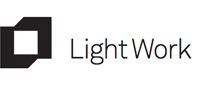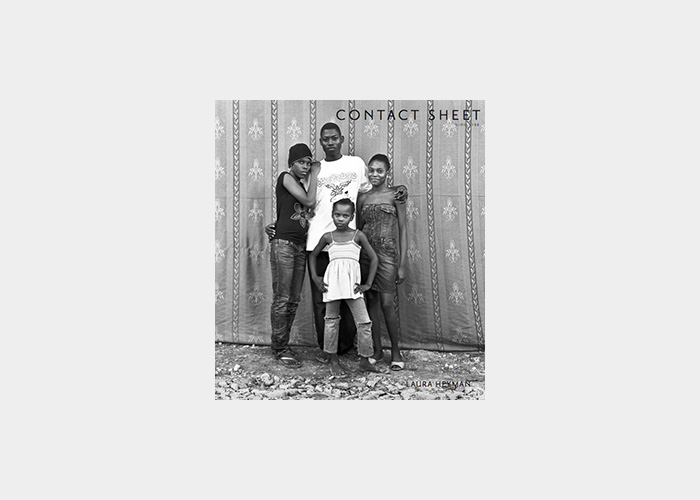Laura Heyman: Pa Bouje Ankò (Don’t Move Again)
Sep 13 – Oct 15, 2010
Kathleen O. Ellis Gallery
Reception: Oct 7, 5–8pm
Collect Pa Bouje Ankò (Don’t Move Again) exhibition catalog, Contact Sheet 158
Also on view:
Laura Heyman: Pa Bouje Ankò (Don’t Move Again)
May 12 – June 16, 2011
Palitz Gallery at Syracuse University Lubin House, New York, NY
—
Several months ago Laura Heyman, a professor in the Transmedia Department at Syracuse University, asked Light Work if we could help support a project she had planned for the Ghetto Biennale in Haiti. We have a small endowment fund to support mid-career artists and decided that this would be a worthwhile project to support, and we offered her our assistance.
André Eugene, Jean Hérard Céleur, Rònald Bazile, Pierre Isnel Destimare, Leah Gordon, and Myron Beasley organized the Ghetto Biennale in Haiti’s capitol Port-au-Prince to ask the question, “What happens when first world art rubs up against third world art?” Heyman joined an international group of artists who started with this basic question, and the Biennale took place November through December of 2009.
For her project Heyman was interested in exploring formal portraiture that followed the example of artists like Mike Disfarmer, James Van Der Zee and Seydou Keita, who used the commercial and utilitarian aspects of their practice to portray their subjects with a consideration and respect that was both clear-eyed and beautiful.
Aware of the many cultural complexities of representation she had many questions, candidly stating, “I was highly conscious of everything that stood in the way of a real exchange between a subject from the first world and a subject from the third world—race, class, opportunity and lack of opportunity, agency, the ability to move freely through the world; all of the things that make communication difficult, as they are always present, but rarely discussed. […] What I found when I arrived in Haiti was that I was working within a community of fellow artists and their families and neighbors.”
Less than a month after Heyman returned from Haiti, the devastating earthquake struck causing unimaginable destruction and loss of life. Heyman is planning to return to Haiti within the next several months to offer her small part to the relief effort and to extend her project that has now become part record and part memorial.
—
Heyman is an associate professor of photography in Syracuse University’s College of Visual and Performing Arts. Her work has been exhibited at such venues as Ampersand International Arts, San Francisco, CA; Deutsches Polen-Institut, Darmstadt, Germany; Senko Studio, Viborg, Denmark; and The National Portrait Gallery, London, United Kingdom. Her most recent curatorial project, Who’s Afraid of America, featuring the work of Justyna Badach, Larry Clark, Cheryl Dunn, LaToya Ruby Frazier, Zoe Strauss and Tobin Yelland, was exhibited at Wonderland Art Space, in Copenhagen, Denmark.
Light Work will feature a Syracuse Symposium event with the artist on Thursday, October 7 from 5–8pm. The evening will begin with a spoken-word poetry performance by Verbal Blend, followed by a lecture by Heyman and a gallery reception. Verbal Blend is a spoken-word poetry program sponsored by Syracuse University’s Office of Multicultural Affairs, designed to enhance participants’ confidence in writing and performing original poems. The program is comprised of a five-week workshop series on poetry forms and formats, journal entry and peer-reviews. Participants get the opportunity to showcase their work at public venues such as open mike nights. For this event, a group of SU students, high school students and community members have prepared spoken-word performances in response to Heyman’s images. Syracuse Symposium is a semester-long intellectual and artistic festival celebrating interdisciplinary thinking, imagining and creating, presented by SU’s College of Arts and Sciences to the entire Syracuse community. The 2010 Syracuse Symposium theme is Conflict (Peace & War).
—
The artist has created a list of reputable organizations that need donations for the ongoing relief and recovery efforts:
Fonkoze is “Haiti’s Alternative Bank for the Organized Poor” It is the largest microfinance institution (MFI) in Haiti, serving more than 55,000 women borrowers, most of whom live and work in the countryside of Haiti, and more than 175,000 savers. With its network of thirty-seven branches covering every region of Haiti, it is also the only MFI that is truly national in scope. Fonkoze is the county’s largest micro-finance institution offering a full range of financial services to the rural-based poor in Haiti. Fonkoze is committed to the economic and social improvement of the people and communities of Haiti and to the reduction of poverty in the country.
GHESKIO CENTER in Port-au-Prince, Haiti was the first institution in the world dedicated to the fight against HIV/AIDS. GHESKIO has provided continuous medical care in Haiti since 1982, never once shutting its doors or charging fees. Since the January 12, 2010 earthquake GHESKIO is providing humanitarian assistance and emergency care to those affected by the disaster and continues to provide life-saving medications to people with HIV/AIDS.
The artists who participated in the Ghetto Biennale created a fund for the Grande Rue community, which was very badly hit. Leah Gordon, a London-based photographer, who has a long history of involvement with this community and is one of the organizers of the Ghetto Biennale, traveled to Port-au-Prince on January 18, 2010 bringing the funds collected directly to the community, along with a wide range of medical supplies. She was responsible for making sure funds were directed to these Haitian people and their needs. At this point the immediate need is for food and temporary shelter.
The mission of the Lambi Fund is to assist the popular, democratic movement in Haiti. Its goal is to help strengthen civil society as a necessary foundation of democracy and development. The fund channels financial and other resources to community-based organizations that promote the social and economic empowerment of the Haitian people. The Lambi Fund supports projects that embrace the following principles: non-violent, non-partisan, community-based, promoting the advancement of women, using education and training for empowerment, and promoting the overall democratic movement.




